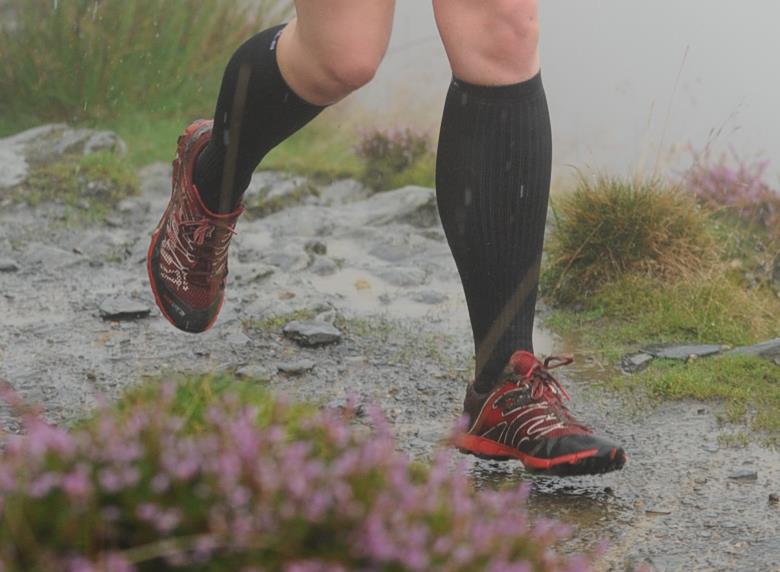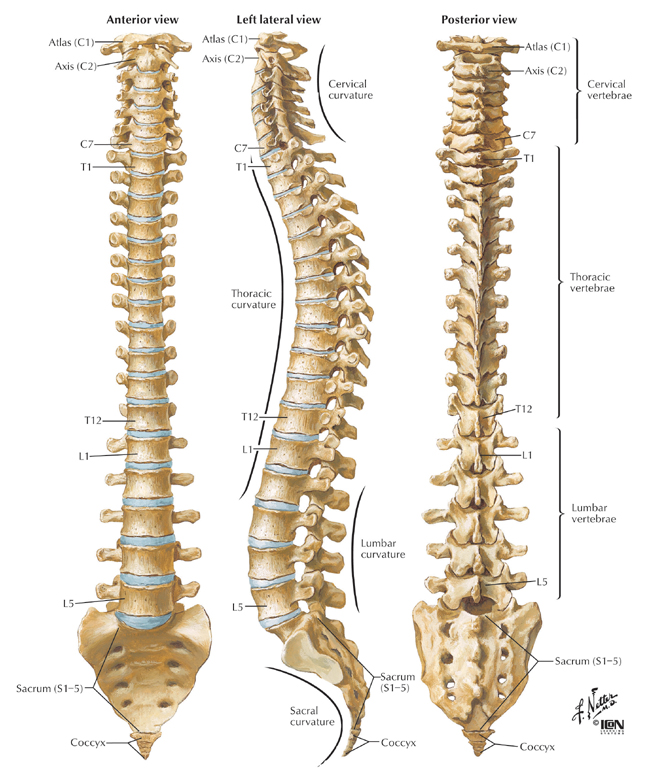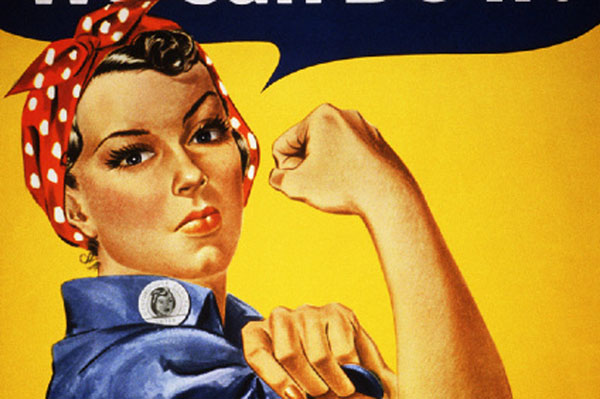 I write this on one of the few mornings in my life when I haven’t been out to exercise first thing. Often academic colleagues who are less or not at all physically active look at me with a mix of shock, awe and disdain when they hear that I usually exercise at least six days a week. Some are amazed that I have the energy for this next to my academic work, others insinuate that they work too much to make time for such leisure activities, and others again assume that my sporting activities are some sort of torture, a sign that I never stop working, and that I don’t do anything for pleasure. Those fellow academics who exercise in one form or another, whether less or more frequently than me, usually understand instantly, and there is no need to explain to each other why we do it. Because exercise – be it in the form of cycling, running, swimming, spinning or weights – always has been a big part of my life ever since I was a child and has become even more important since I set out on an academic career path, I want to use this post to explain, as concisely and simply as possible, what exercise does for me in terms of my physical and mental health, and how it impacts on my academic work life.
I write this on one of the few mornings in my life when I haven’t been out to exercise first thing. Often academic colleagues who are less or not at all physically active look at me with a mix of shock, awe and disdain when they hear that I usually exercise at least six days a week. Some are amazed that I have the energy for this next to my academic work, others insinuate that they work too much to make time for such leisure activities, and others again assume that my sporting activities are some sort of torture, a sign that I never stop working, and that I don’t do anything for pleasure. Those fellow academics who exercise in one form or another, whether less or more frequently than me, usually understand instantly, and there is no need to explain to each other why we do it. Because exercise – be it in the form of cycling, running, swimming, spinning or weights – always has been a big part of my life ever since I was a child and has become even more important since I set out on an academic career path, I want to use this post to explain, as concisely and simply as possible, what exercise does for me in terms of my physical and mental health, and how it impacts on my academic work life.
 Perhaps unsurprisingly, exercise helps me maintain a good level of physical fitness. Perhaps more surprisingly, for me this is integral to being able to work. When I don’t exercise, my head, neck and back suffer from my bad posture, general inactivity, and from being hunched over my computer or over a book for the vast majority of the day. When I exercise, these issues all often resolve themselves because my posture automatically improves as all the big and small muscles in and near my back and in my core grow stronger. Needless to say I work better, more efficiently, and am happier when I don’t suffer from constant physical pains next to the mental torture that accompanies the most difficult periods of writing and thinking.
Perhaps unsurprisingly, exercise helps me maintain a good level of physical fitness. Perhaps more surprisingly, for me this is integral to being able to work. When I don’t exercise, my head, neck and back suffer from my bad posture, general inactivity, and from being hunched over my computer or over a book for the vast majority of the day. When I exercise, these issues all often resolve themselves because my posture automatically improves as all the big and small muscles in and near my back and in my core grow stronger. Needless to say I work better, more efficiently, and am happier when I don’t suffer from constant physical pains next to the mental torture that accompanies the most difficult periods of writing and thinking.
 Related to the physical wellbeing that results from exercise is a healthier sleeping pattern, which, for me, is often related to better mental health. When I’ve exercised in the morning and/or in the evening, my body needs rest. I fall asleep within thirty minutes from going to bed. I sleep until I naturally wake up, usually before my alarm goes off, and I feel awake, ready to tackle the day. I don’t lie in bed at night worrying about the things I haven’t done, the things I have done but may have done wrong or perhaps should have done differently, and I don’t worry about all the things I have to do tomorrow, and the day after, and the day after that. I sleep deeply, I sleep well, both because my body is tired and because my brain, too, is happy to switch off. This hasn’t always been the case, as you will know if you’ve read my post about anxiety issues (see here).
Related to the physical wellbeing that results from exercise is a healthier sleeping pattern, which, for me, is often related to better mental health. When I’ve exercised in the morning and/or in the evening, my body needs rest. I fall asleep within thirty minutes from going to bed. I sleep until I naturally wake up, usually before my alarm goes off, and I feel awake, ready to tackle the day. I don’t lie in bed at night worrying about the things I haven’t done, the things I have done but may have done wrong or perhaps should have done differently, and I don’t worry about all the things I have to do tomorrow, and the day after, and the day after that. I sleep deeply, I sleep well, both because my body is tired and because my brain, too, is happy to switch off. This hasn’t always been the case, as you will know if you’ve read my post about anxiety issues (see here).
 The reason I worry less and feel better in terms of my mental health when I exercise regularly is that I get up and expend any negative energy in the form of a run, a swim, a ride, or a weights session. In short, anything that will keep my body busy and that will send my mind into a happy state (remember, exercise causes your brain to release endorphins, i.e. happy chemicals). I do this almost without fail before conference papers, when I’m organising conferences, before interviews, etc. For me, off-road running is by the far the best option to get rid of any negative thoughts and any unnecessary dwelling on the past. When I run off-road, my brain doesn’t have time to think about things. If I don’t concentrate on every step, I’ll probably fall flat on my nose and into the next bog hole, no matter how fast or slowly I’m going. It’s also something of a childish adventure when I explore new routes, am chased by cows, get stuck in mud, see the baby rabbits in the early morning, and so on. Cycling and swimming are different in this context. Although I concentrate on what I do, there is more time to left your mind drift. When I swim, all I do is count the lanes. With every stroke, I say the number of the length I’m swimming in my head, until I turn and the number changes. Boring, yes, but unbelievably therapeutic for me! When I ride, I often listen to music, and – as with running – the views where I live and ride are too breathtaking and inspiring to think about the bad things in life. When I go to the gym, I focus entirely on the exercises at hand. Especially because I don’t work with machines and only with free weights, concentration and technique are crucial, not least when it comes to those exercises I do standing on a balance board, or particularly demanding exercises such as power cleans. I feel it’s crucial to note here, too, that I’m by no means talented in any of these areas. I can do most sports to a just-above-average level, but I don’t really excel at anything, especially not running, especially not going uphill, be it by foot or on wheels.
The reason I worry less and feel better in terms of my mental health when I exercise regularly is that I get up and expend any negative energy in the form of a run, a swim, a ride, or a weights session. In short, anything that will keep my body busy and that will send my mind into a happy state (remember, exercise causes your brain to release endorphins, i.e. happy chemicals). I do this almost without fail before conference papers, when I’m organising conferences, before interviews, etc. For me, off-road running is by the far the best option to get rid of any negative thoughts and any unnecessary dwelling on the past. When I run off-road, my brain doesn’t have time to think about things. If I don’t concentrate on every step, I’ll probably fall flat on my nose and into the next bog hole, no matter how fast or slowly I’m going. It’s also something of a childish adventure when I explore new routes, am chased by cows, get stuck in mud, see the baby rabbits in the early morning, and so on. Cycling and swimming are different in this context. Although I concentrate on what I do, there is more time to left your mind drift. When I swim, all I do is count the lanes. With every stroke, I say the number of the length I’m swimming in my head, until I turn and the number changes. Boring, yes, but unbelievably therapeutic for me! When I ride, I often listen to music, and – as with running – the views where I live and ride are too breathtaking and inspiring to think about the bad things in life. When I go to the gym, I focus entirely on the exercises at hand. Especially because I don’t work with machines and only with free weights, concentration and technique are crucial, not least when it comes to those exercises I do standing on a balance board, or particularly demanding exercises such as power cleans. I feel it’s crucial to note here, too, that I’m by no means talented in any of these areas. I can do most sports to a just-above-average level, but I don’t really excel at anything, especially not running, especially not going uphill, be it by foot or on wheels.
 No matter what kind of exercise I do, by the time I sit down to work in the morning, I’ve achieved something, and if I haven evening session planned – even if it’s only something like Pilates – then I also have a definitive end point to work towards, something which I’ve often lacked during my years as a doctoral researcher. When I switch on my computer in the morning, I’ve already done something that makes my mind and my body feel good, and that forces me to acknowledge that there is more to life than work, and that that article that needs finishing today is important, but, as so many things, it isn’t the be-all and end-all of my life, an attitude which can easily develop during Ph.D. work in particular, I think. Most importantly, all this applies no matter how my training goes, if I take it easy, or if I try hard. Even if I run through the pouring rain, have two punctures, or if I can’t lift the weights I usually lift, I still come back home happy that I’ve done something, and sometimes even happier because I’ve done it despite adverse conditions or events. I’m not a professional athlete and I never will be. I don’t have to get up and put my trainers on because someone is paying me for it. I exercise because I love it, and because it ultimately makes me feel better, even or especially on those few days when I’d perhaps rather have another brew with my cat on my lap and the telly on. Yet, it’s very easy, through amateur competition and misplaced ambition, to put yourself under pressure when doing something you do entirely voluntarily and, really, for fun. It’s always worth remembering why we do things, because often the explanation isn’t what we think it is (“because I want to” rather than “because I have to”).
No matter what kind of exercise I do, by the time I sit down to work in the morning, I’ve achieved something, and if I haven evening session planned – even if it’s only something like Pilates – then I also have a definitive end point to work towards, something which I’ve often lacked during my years as a doctoral researcher. When I switch on my computer in the morning, I’ve already done something that makes my mind and my body feel good, and that forces me to acknowledge that there is more to life than work, and that that article that needs finishing today is important, but, as so many things, it isn’t the be-all and end-all of my life, an attitude which can easily develop during Ph.D. work in particular, I think. Most importantly, all this applies no matter how my training goes, if I take it easy, or if I try hard. Even if I run through the pouring rain, have two punctures, or if I can’t lift the weights I usually lift, I still come back home happy that I’ve done something, and sometimes even happier because I’ve done it despite adverse conditions or events. I’m not a professional athlete and I never will be. I don’t have to get up and put my trainers on because someone is paying me for it. I exercise because I love it, and because it ultimately makes me feel better, even or especially on those few days when I’d perhaps rather have another brew with my cat on my lap and the telly on. Yet, it’s very easy, through amateur competition and misplaced ambition, to put yourself under pressure when doing something you do entirely voluntarily and, really, for fun. It’s always worth remembering why we do things, because often the explanation isn’t what we think it is (“because I want to” rather than “because I have to”).
A brief but, to me, important point that I don’t want to omit here: I like being a physically strong and resilient woman! A woman I once knew shrieked with disgust when I tensed my leg muscles at a time when I was spending up to twenty hours a week on my bike; she shrieked simply because they were visible, and expressed quite openly how horrible she thought they were. Perhaps thanks to my mother, I’ve never understood this unease about women with muscles. I’m proud – and always have been – of the fact  that I have the capacity to build muscle mass and tone quite swiftly. It was only during the last three years of college that I found a community of fellow students – most of whom were competitive athletes at a national level, unlike me – who understood the place sport had in my life, and who weren’t afraid to admit what weight they could squat. Yet, the gym, often more akin to a zoo, remains a strange place to me, especially when it comes to gendered performances, but this is a topic for an entirely different post.
that I have the capacity to build muscle mass and tone quite swiftly. It was only during the last three years of college that I found a community of fellow students – most of whom were competitive athletes at a national level, unlike me – who understood the place sport had in my life, and who weren’t afraid to admit what weight they could squat. Yet, the gym, often more akin to a zoo, remains a strange place to me, especially when it comes to gendered performances, but this is a topic for an entirely different post.
On a personal level, I am convinced that exercise makes me a better academic than I would be without it. It doesn’t make me a lesser worker because I take time to do other things. It doesn’t make me less determined or ambitious; quite the opposite, in fact. It makes me more efficient, it makes me healthier, and it makes me happier, all of which result in better and more dedicated work. I don’t think this applies only to exercise, by the way. I think having something besides our work that defines who we are, and that gives us pleasure, can only increase our quality of life, our relationships with others, and our work. I don’t believe that immersing yourself in something seven days a week for twenty-four hours a day yields the best results. Rather, regularly stepping away from what you’re doing and reassessing it with fresh eyes, day by day, does. This doesn’t mean, of course, that I don’t experience those days when you work late to make an important deadline, and when I miss a run  because I’m so absorbed and focused on something that I can’t imagine stopping even for an hour. However, I now try to keep those instances to a minimum, and I certainly don’t have the physical capacity or the desire anymore to work until the early hours of the morning, as I sometimes did during my Ph.D. The price I pay the days after is too high, and the long-term effects too risky. Some may gasp at my audacity to suggest that I don’t work deep into the night, every day, all year, with minimal sleep. Others, I know, will understand the value of being something more than an academic, not only because it makes you better at what you do in your job but also because it makes you who you are, and happier version of it at that.
because I’m so absorbed and focused on something that I can’t imagine stopping even for an hour. However, I now try to keep those instances to a minimum, and I certainly don’t have the physical capacity or the desire anymore to work until the early hours of the morning, as I sometimes did during my Ph.D. The price I pay the days after is too high, and the long-term effects too risky. Some may gasp at my audacity to suggest that I don’t work deep into the night, every day, all year, with minimal sleep. Others, I know, will understand the value of being something more than an academic, not only because it makes you better at what you do in your job but also because it makes you who you are, and happier version of it at that.
Hi Nadine! I started following you on Twitter because of your cycling posts. When I noticed that you also wrote about academia, I became even more interested in your writing. As a ‘sporty’ woman who quit my PhD after 3 years, your blog is a very satisfying read. I chose my own happiness over academia in the end, but had none of these amazing resources to consider when I was making the agonizing decision to leave my research behind. Sport has taken a more prominent role in my life these days, and has opened doors for me in so many respects. Thanks for not limiting yourself to writing about your content expertise 🙂 Great blog!
I agree with all of this! Last autumn I very reluctantly started going to the gym, as I don’t see myself as a ‘person who does exercise’ (I think I’m affected here by American high school movie stereotypes of sporty types vs thoughtful academics!), but I know it really helps me stop my brain speeding through anxious thoughts, as well as to feel better about my body image. I go twice a week – I’d like to go more, but I need to get better at organising my time in order to do so… I’m hoping to start going to a class soon, probably pilates. I also cycle to campus every day, which in hilly Sheffield is more of a workout than it sounds. Exercise time is now really important to me.
Great post – regular activity is critical! I would add that sometimes the stress and anxiety of the professional track, combined with parenting and other aspects of life, takes away a person’s capacity to be active. Nonetheless, being active on a regular basis is better all round. I too have found colleagues express surprise, shock, and the standard question about my knees – “don’t they wear out,” I am asked. Several years into a revised training program I run at least 6 times a week plus cycling. If anything being active adds to my capacity to work.
Great post Nadine. I totally agree with everything you have said. I’m training for a half marathon (6 times a week), completing a Masters, and working 13 hours a week. Exercise makes me feel stronger both physically and mentally. I can take all my frustrations out on the road (and my poor body) and clear my head space to prioritise and collect my thoughts. I have often thought about my research from a new angle while on exercising and then ran home to work on it. I think it’s about getting a balance and obviously exercise helps for some people, including you and me.
Lovely piece – I feel the exact same way!
I think this is my favourite post so far. Keep up the great work!